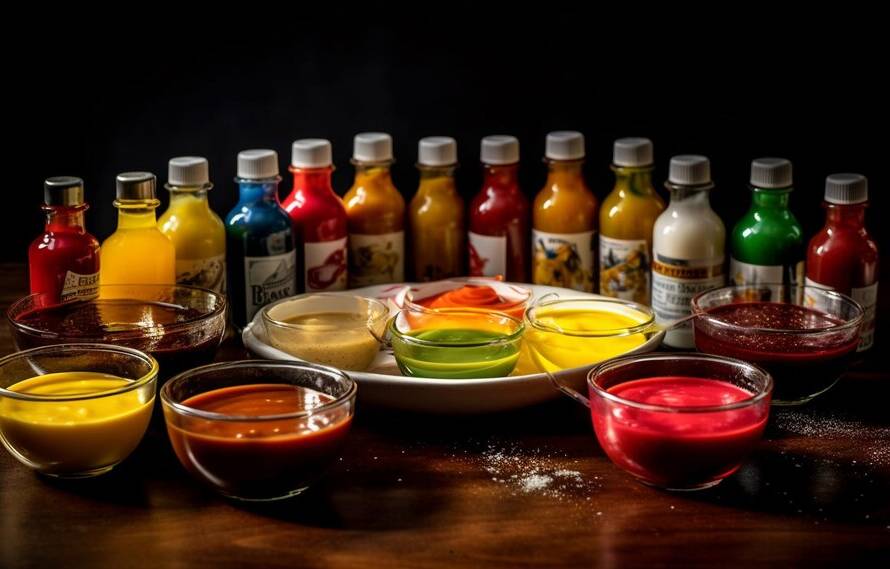
If you’re thinking about entering the beverage industry, you’re not alone. The demand for innovative and healthy beverages is growing exponentially, making this sector attractive to many investors.
Whether you’re interested in launching an energy drink, natural juices, or healthy drinks, this launching drink for beginners in the industry will provide you with all the information you need to succeed in this competitive field
Basic Steps Before Launching Your Project
Market Research and Competition Analysis
Before starting the beverage production process, it’s essential to conduct thorough research on your target market. Knowing consumer preferences and understanding the most in-demand types of beverages, such as healthy or refreshing drinks, is important to identifying gaps in the market that can be filled.
Idea Development and Innovation
Creating a new beverage means thinking outside the box. Your beverages don’t have to be complicated, but they do have to be unique. Working with flavor and ingredient specialists helps develop a product that meets consumer desires and stands out from the crowd.
Creating a solid business plan
No project can succeed without a solid business plan. This plan includes determining initial costs, financing methods, developing marketing strategies, and understanding logistical challenges. The plan will serve as a reference for you throughout the beverage launch process and will help you adapt to any changes in the market.
Legal Requirements and Regulations in the launching drink for beginners in the industry
Getting Licenses and Approvals
One of the biggest challenges for beginners in the industry is dealing with the legal aspects. Requirements vary from country to country, but typically include health licenses, ingredient approvals, and ensuring that your products meet food standards.
Labeling and Packaging
It is essential that your beverage labeling and packaging comply with local and international laws. They should include all necessary information such as ingredients, nutritional content, and expiration dates. Additionally, the packaging should be attractive to consumers and reflect the quality of the product
Production and Manufacturing
Choosing the Right Equipment
Equipment requirements vary depending on the type of beverage you plan to produce. For example, energy drinks require different equipment than juice production. Investing in quality equipment from the start can save you a lot of costs in the future.
Choosing Suppliers
Choosing the right suppliers of raw ingredients is a crucial step in ensuring the quality of your product. Make sure your suppliers have a proven track record of providing high-quality materials and are committed to standard specifications.
Examples of Successful Projects
Natural Healthy Drinks
One successful example in this area is the launch of healthy drinks based on natural ingredients. These drinks often target consumers looking for healthy alternatives to soft drinks.
Innovative Energy Drinks
Energy drinks are another example of success in the market. By offering new flavors and unique ingredients, some companies have been able to quickly build a large fan base.
Protein Drinks and Nutrition Supplements
With the growing interest in health and fitness, protein drinks have become a staple in many people’s diets. Startups are offering products that focus on plant-based proteins or other natural ingredients, making them attractive to consumers interested in healthy nutrition. Innovation in this area can include adding new flavors or incorporating fitness-supporting ingredients such as vitamins and minerals.
Low-Sugar Soft Drinks
The demand for low- or no-sugar soft drinks is constantly increasing, as consumers look for healthier alternatives to traditional beverages. You can capitalize on this trend by offering soft drinks that rely on natural sweeteners or alternatives that do not affect health, while maintaining the delicious taste that consumers expect.
Herbal and therapeutic drinks
Herbal drinks that rely on the benefits of medicinal plants are gaining popularity, especially those that aim to improve the digestive system or support the immune system. These drinks can be a natural and safe alternative to traditional medicines in some cases, making them a profitable option for newcomers to the industry.
Tropical fruit drinks
With the growing interest in new and exotic flavors, tropical fruit drinks have gained great popularity. These drinks offer distinctive and unconventional flavors such as coconut, pineapple, and mango, giving startups an opportunity to stand out in a crowded market. Newcomers to the industry can focus on producing natural and sustainable drinks that meet the needs of consumers looking for new adventures in taste.
How to Use These Examples in a launching drinks for beginners in the industry
By studying these successful examples, beginners can get inspired and look for ways to develop beverages that meet the needs and preferences of their target market when launching drink for beginners in the industry
The Importance of Research and Development in the Beverage Industry
Developing Innovative Recipes
One of the most important elements of success in the beverage industry is the ability to develop innovative and attractive recipes that meet the needs of consumers. To achieve this, you need to continuously work on improving your recipes and experimenting with different ingredients. This may require collaborating with nutritionists and chemists to determine the optimal combinations that achieve a balance between taste and health benefits. With each experiment, careful observations must be taken to determine the necessary improvements to reach a final product that meets market expectations.
Using Natural Ingredients
In recent years, the demand for products that rely on natural and unprocessed ingredients has increased, making this trend one of the great opportunities when launching beverages for beginners in the industry. Relying on natural ingredients can give your product a competitive advantage in the market. In addition, using natural ingredients requires comprehensive study to ensure the stability of the product and its shelf life without the need for artificial additives.
Sustainable Manufacturing Practices
Sustainability has become an important element in consumer decisions. Therefore, it is beneficial to adopt sustainable manufacturing practices in beverage production processes. This includes reducing the use of water and energy in production processes, and using renewable energy sources when possible. Also, strategies can be adopted to reduce the use of plastic in packaging, which enhances the positive image of the brand in the eyes of environmentally conscious consumers.
Recycling components and materials
Recycling the components left over from the manufacturing process can reduce costs and contribute to reducing waste. For example, peels or fruit scraps can be reused to make other products such as concentrated juices or using organic materials as natural fertilizer. This approach not only reduces waste but also promotes innovation in introducing new sustainable products.
Quality Assurance and Process Control
Food Safety Standards
Maintaining high standards of quality and food safety is crucial when launching entry-level beverages in the industry. It is essential that you follow best practices approved by local and international health authorities to ensure the safety of your products. These procedures include temperature control, hygiene at all stages of production, and periodic testing of products to ensure they are free of any contaminants.
Quality Control Systems
By adopting quality management systems such as ISO 22000 or HACCP, you can ensure that all production processes are conducted according to specific standards to ensure the quality of your final beverage. These control systems can help detect any defects or issues early, allowing you to take corrective action before they affect your product or reputation in the market.
Packaging as an Attractive Factor
Packaging plays a vital role in attracting consumers when launching entry-level beverages in the industry and is an integral part of the product experience. Collaborating with packaging designers and environmental experts to develop innovative and sustainable packaging will help to present your product in the best possible light. Packaging should be convenient for everyday use and practical, whether it is easy to open or suitable for consumption on the go.
Packaging Sustainability
You can take advantage of modern packaging trends when launching entry-level beverages by using biodegradable or recyclable materials. Not only do these materials help reduce your environmental impact, they also enhance the value of your product in the eyes of sustainability-conscious consumers.
Entering the beverage industry is a promising opportunity for beginners, but it requires careful planning and coordination. With this guide to launching beverages for beginners in the industry, you will have the essentials to get started and excel in this field. Whether you are planning to launch an energy drink or a natural juice, following the steps mentioned in this guide will help you avoid many of the obstacles you may face.
If you need further guidance and support at any stage of the process, you can rely on ProNano Food Industry Consulting. The company provides specialized consultations to help you succeed in this competitive field, whether it is in selecting equipment or developing marketing strategies. For more information, do not hesitate to contact us through our website or contact our specialized team
Read more about establishing a Tiger Nut beverage factory



